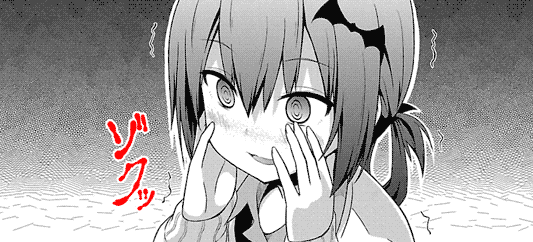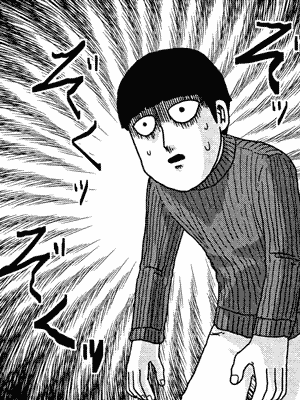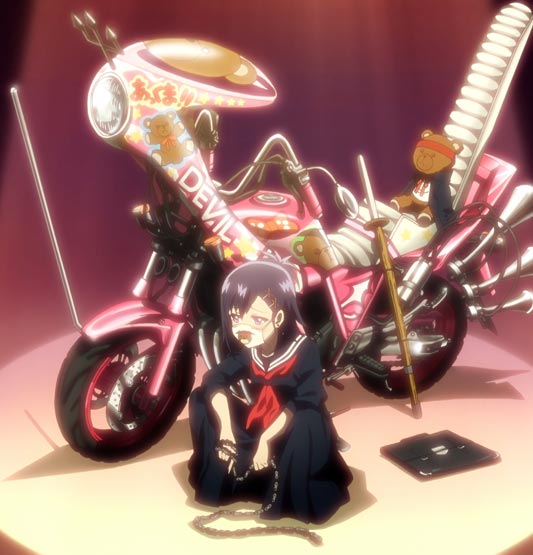In Japanese, zoku 続 means "sequel," or more literally, "continuation." It's found in the names of some anime which refer to the second season of a series or some other sort of continuation.
It's spelled with the same kanji as tsuduku 続く, which means "to continue" and is sometimes found at the end of an episode (typically spelled with hiragana, as tsuduku つづく) because the series continues in the next episode.
Examples
Since there are not that many anime and OVA with zoku in their names, I gathered a list of them and translated their titles below, for reference:
- Zoku: Atakkka YOU! - Kin Medaru e no Michi
続・アタッカーYOU! 金メダルへの道 (2008)
Continuation: Attacker YOU! - Path to the Golden Medal - Zoku: Sayonara Zetsubou-Sensei
俗・さよなら絶望先生 (2008)
Continuation: Goodbye Zetsubou-Sensei
(Jokingly written with 俗 instead of 続 because of the kanji's meaning: worldliness, mundane things, as opposed to spirituality, Buddhism, etc.) - Zoku: Natsume Yuujinchou
続 夏目友人帳 (2009)
Continuation: Natsume's Book of Friends.
(note the space in the title. It's also written 続・夏目友人帳) - Mushi-shi Zoku-shou
蟲師 続章 (2014)
Mushi-shi: Sequel Chapter
(mushi normally means "insect," but in the past the meaning of the kanji included any lifeforms, even humans) - Yahari Ore no Seishun Rabukome wa Machigatteiru. Zoku
やはり俺の青春ラブコメはまちがっている。続 (2015)
As I thought my young romantic-comedy is wrong. Continuation. - Wake Up, Girls! Zoku: Gekijouban
続・劇場版 (2015)
Continuation: Movie Version. (WUG had 2 movie continuations) - Zoku: Owarimonogatari
続・終物語 (2018)
Continuation: Owarimonogatari. - Zoku: Touken Ranbu: Hanamaru
続 刀剣乱舞-花丸 (2018)
Continuation: Sword Dance: Flower Circle
This one isn't anime, but it's a live-action based on a manga.
- ALWAYS Zoku: Sanchoume no Yuuhi
ALWAYS 続・三丁目の夕日 (2007)
ALWAYS Continuation: Third Street's Evening Sun
Well, this is awkward. But it seems the first anime to use zoku in their titles were, in fact, hentai. A couple of examples:
- Zoku: Kuroneko Kan
続 黒猫館 (1993)
Continuation: Black Cat Mansion - Zoku: Gosenzo San'e
続・御先祖賛江 (2000)
Continuation: To Your Ancetors* - Zoku: Koihime
続・恋姫 (2001)
Continuation: "Princess of Passion."
*Note: because the Japanese language absolutely hates you, the phrase X yori Y-san e XよYさんへ, meaning "from X to Y-san," written with the san honorific and the e へ particle that's normally written with the hiragana he へ instead of e え because of reasons, sometimes needs to written with kanji, even though it doesn't have kanji, and so ateji is used, making it become written as X yori Y san'e X与利Y賛江. This happens, for example, in banners hanging on flowers given "from X to Y" in events to commemorate Y opening a new store or publishing a new book or something. Such banners are preferably written entirely with kanji, because of formality and aesthetics, I guess, and so they use the ateji instead of writing the particles with just kana. (see 『秋山祐徳太子の母』出版記念展オープニングパーティー to have an idea). (By the way I can't believe the title of a two decades old hentai just made me go around the internet trying to figure what that means)
Anyway, if true, I'd guess that's because around that time it was normal for normal anime to be aired on and on and on for years, so sequels weren't really necessary, and only something like adult anime which were not aired on TV would need to release "continuations." (there are more recent hentai anime with zoku in the title, the practice hasn't ceased for that genre, I just haven't bothered to list them.)
Homonyms
There are a few other things that are also zoku in Japanese.
See also: homonyms.
Sound Effect
The word zoku ゾク may also be a sound effect (mimetic word) for shivering or feeling excited.
- zoku'
ゾクッ
*shiver* - See also: shaking lines, kakeami カケアミ.
- See also: odoro おどろ.
Clan
The morpheme zoku 族 means "clan" and is found in a bunch of words, like:
- kazoku
家族
Family. - kizoku
貴族
Nobility. - shuzoku
種族
Race. - minzoku
民族
The people of an ethnicity.
Anime: Gabriel DropOut, ガヴリールドロップアウト (Episode 7, Stitch)
- Context: a sukeban スケバン.
- bousouzoku
暴走族
Biker gang.
Thief
The word zoku 賊 means "thief" and is found in words like:
- touzoku
盗賊
Robber. - gizoku
義賊
Chivalrous thief. (e.g. Robin Hood who steals from the rich to give to the poor.) - kaizoku
海賊
Pirate. - sanzoku
山賊
Mountain bandits.



hahaha loving this stuff! I'm learning, and laughing :P Thank you for all your hard work!
ReplyDelete